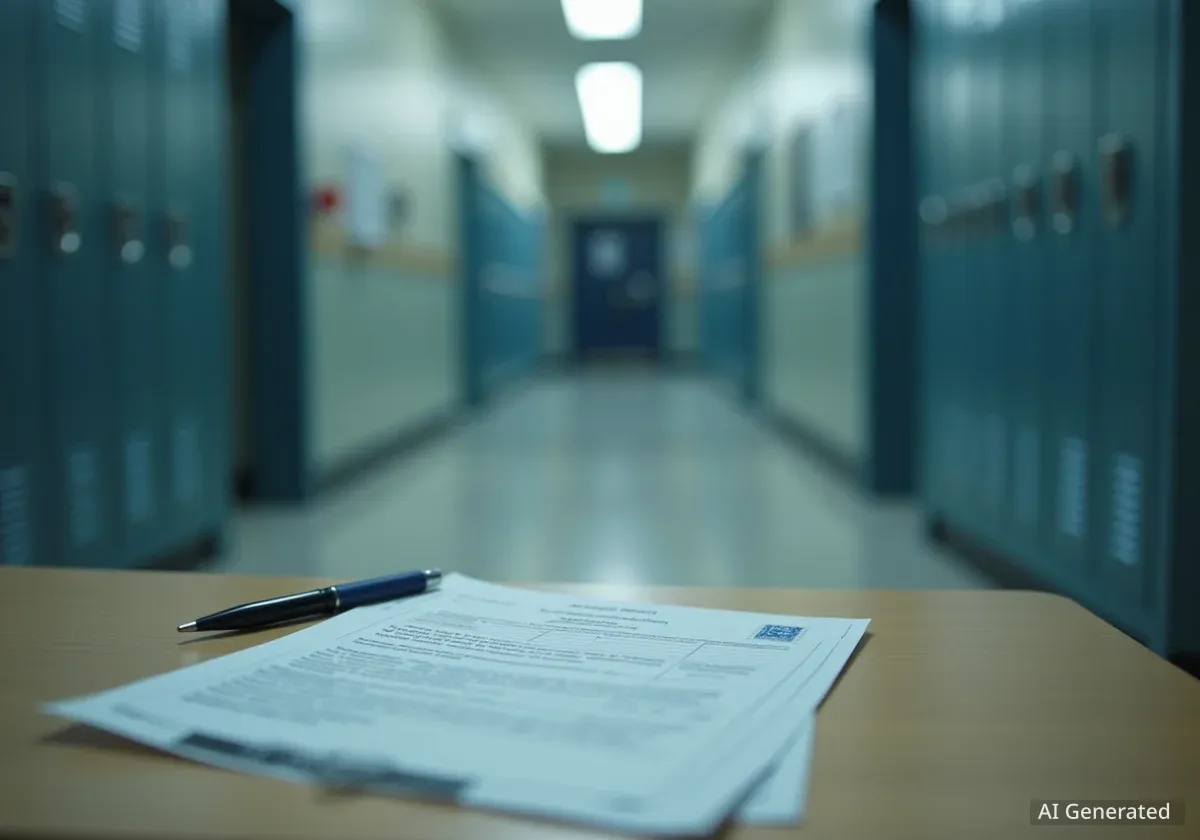A family in Gilbert, Arizona, is publicly challenging the Gilbert Public Schools district after officials refused to honor a medical directive for their 17-year-old son. The student, Rigo Jackson, has a "do not resuscitate" (DNR) order recommended by his physicians due to his complex medical conditions.
The dispute has resulted in Rigo, who should be a senior, being kept out of school by his parents, Susie and Brett Jackson. They argue the district's refusal to follow the medical plan goes against their son's best interests and medical advice, which states that CPR would cause him significant harm.
Key Takeaways
- Gilbert Public Schools in Arizona will not honor a 17-year-old student's "do not resuscitate" (DNR) order.
- The student's doctors have advised that CPR would be harmful and likely result in a traumatic death due to his medical conditions.
- The family has kept their son out of his senior year at Gilbert High School over the issue.
- Under current Arizona state law, school personnel are not legally obligated to follow DNR directives.
Family's Plea to the School Board
Susie and Brett Jackson brought their concerns to a Gilbert Public Schools board meeting, urging administrators to reconsider their position. They adopted their son, Rigo, in 2020 and have managed his significant health needs, which include being nonverbal, using a permanent feeding tube, and having very low muscle tone.
"School has always been a really important part of his life," Susie Jackson stated, highlighting the difficulty of their decision to keep him home. The family feels the district has not made an effort to understand the medical reasoning behind the DNR.
During the public meeting, Susie Jackson directly addressed the board about the inconsistency in the school's policies.
"You allow for many orders to be followed, feeding tubes, action plans, G2 tubes. Why not this? This is an action item," she said.
She emphasized the emotional toll on her son, who she said is "now experiencing the trauma of adults failing him again," referring to his time in the foster care system.
The Medical Reality Behind the DNR
The family explained that the DNR order was not made lightly but on the strong recommendation of Rigo's medical team. Due to his fragile physical state, standard life-saving procedures like chest compressions could cause devastating injuries, such as broken ribs and internal damage, without changing the ultimate outcome.
"I think people’s knee-jerk reaction is how could you not do everything possible to save the life of your child," Susie Jackson explained. "What they don’t understand is that compressions on his body would not essentially save his life. It may restart his heart, but the end result is likely going to be the same, and it’s just going to cause a traumatic death for him."
Understanding a DNR Order
A Do Not Resuscitate (DNR) order is a legal medical document, written or ordered by a physician, that instructs healthcare providers not to perform cardiopulmonary resuscitation (CPR) if a patient's breathing stops or their heart stops beating. These orders are typically made for individuals with severe or terminal illnesses where resuscitation may be medically futile or cause more suffering.
The Jacksons have an action plan for other medical emergencies, such as seizures, which the school has previously honored. They view the DNR as a similar medical plan designed to ensure Rigo's end-of-life care is handled with dignity and without unnecessary pain.
District's Position and State Law
A spokesperson for Gilbert Public Schools acknowledged that this is not the first time the district has encountered a DNR request. However, the district currently has no formal policy in place to address such orders. The spokesperson stated that staff are required to provide emergency care until paramedics arrive.
The district proposed a compromise plan that involves staff immediately calling emergency services and moving the student to a private area. However, under this plan, employees would still be required to administer emergency treatment while waiting for medical professionals.
"Our staff are still required to provide emergency treatment while awaiting the arrival of emergency services, at which point care decisions are handed over to the emergency medical professionals on site," the spokesperson said.
A Conflict of Care and Responsibility
The situation highlights a difficult ethical and legal dilemma for school districts. On one hand, there is the parental and medical directive to prevent a painful and traumatic death. On the other, there is the school's perceived duty of care and the potential emotional impact on staff and students who might witness a medical emergency without intervention.
Susie Jackson believes the district's hesitation is more about protecting its staff than honoring her son's needs.
"I think the concern is honestly more for staff and other students than it is on him. It’s how would they respond to this," she commented.
For the Jackson family, the district's stance has deprived their son of a crucial part of his life. Rigo, who has attended Gilbert Public Schools since the 6th grade, is now missing out on his senior year experiences.
"We are fighting for everything we can do for the best life that he can live," Susie Jackson said. "This should be the best time of his life right now, and they’ve taken that from him by not honoring his wishes."
The family continues to advocate for a policy change that would allow the district to honor physician-ordered DNRs for students with complex medical needs, hoping to prevent other families from facing the same challenge.





